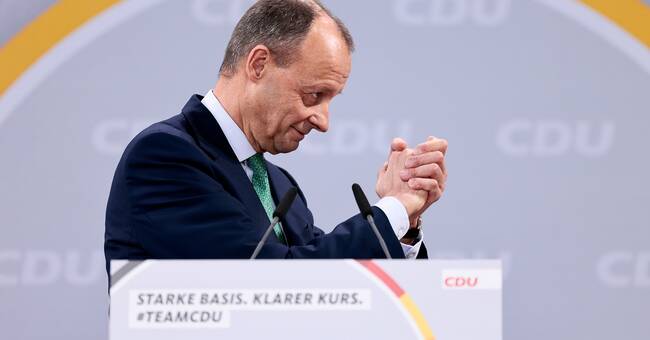Merz, who in December won a membership vote on who will succeed the short-lived Armin Laschet in the chairmanship, received close to 95 percent of the votes at the digital party meeting.
He has a background as a group leader in the Bundestag in the early 00's, and was replaced in 2002 by Angela Merkel - a bitter defeat that led to a rift between the two.
After many years in business, including the asset manager Blackrock, he made a comeback in German politics when Merkel made the sortie.
He lost two presidential battles - first against Annegret Kramp-Karrenbauer and then against Armin Laschet - before finally capturing the leadership position.
Business-friendly conservative
The 66-year-old Merz is something of a "loose cannon" and has often attracted attention with his statements.
Ideologically, he is to the right of both Laschet and Kramp-Karrenbauer and Merkel, with an emphasis on business-friendly politics and liberal conservatism.
The strategy is to win back voters who have joined the liberal FDP and right-wing populist AFD.
In a high-profile interview in 2018, he called the latter party "openly National Socialist".
In the run-up to the next election, Merz also needs to build a credible government alternative, which will be a challenge, as all parties that the CDU / CSU has formed or been close to forming a coalition with in the early 1960s are now ruling together.
Denies right-wing plans
He himself has turned against claims about an upcoming right-hander, which should be seen in the light of the fact that the word "right" in German is not entirely salable.
Instead, the politicians of the big parties like to talk about the "middle".
Merz has invited all former CDU leaders who are still alive to dinner on Saturday night.
However, he can not count on Merkel's company - she has refused.

